Did Crassus, Ancient Rome’s Wealthiest Man Really Die From Drinking Molten Gold?
Ellen Lloyd – MessageToEagle.com – Marcus Licinius Crassus (c. 115 B.C. —53 BC.) was a Roman general and politician. He is today remembered for being the wealthiest man in ancient Rome, suppressing the slave revolt led by Spartacus and forming the so-called First Triumvirate with Julius Caesar and Pompey to challenge effectively the power of the Senate.
When Crassus died, a Civil War broke out between Caesar and Pompey. According to some historical sources, Crassus died from drinking molten gold, but is this really true?
Crassus was born a wealthy man, but he lost his entire inheritance during the Marian-Cinnan proscriptions, in which he was forced to flee to Hispania (the Roman name for the Iberian Peninsula).
Crassus got his revenge while commanding the left wing of Lucius Cornelius Sulla’s army, making a fortune from proscriptions himself.

Soon Crassus became a very rich man. He earned his fortune of proscriptions, slave trafficking, judicious purchases of land and houses, purchases of burning property.
Proscriptions were only part of his overall wealth. It is said that after receiving word of houses being on fire, Crassus would arrive with an army of 500 “firefighters” and attempt to offer a modest sum for the property. If the offer was refused, Crassus would let the property burn to the ground.
Crassus became a politician and used his wealth to gain support from senators. However, wealth was not enough to give Crassus the power he wanted. Crassus needed a military victory to consolidate his grip on power and make a name for himself in military matters. Crassus used Syria as the launchpad for a military campaign against the Parthian Empire, Rome’s long-time Eastern enemy.
The Parthian people had established an empire that lasted almost 500 years, from the mid-3rd century BC until 224 CE. Their empire was the most lasting of the empires of the ancient Near East. Crassus’ military campaign was a disastrous failure, resulting in his defeat and death at the Battle of Carrhae.
It remains unknown whether Crassus died fighting or committed suicide to prevent being captured.

Crassus was well-known for being greedy. Plutarch said that “before he (Crassus) went upon his Parthian expedition, he found his possessions to amount to seven thousand one hundred talents; most of which, if we may scandal him with a truth, he got by fire and rapine, making his advantages of the public calamities.” He died in pursuit of wealth from Asia.”
The rumor about “dying from drinking molten gold” can be traced to historian Cassius Dio who wrote that having discovered his body, the enemy “poured molten gold into his mouth in mockery for he had set great store by money.”
Where and how exactly Dio obtained, this information is unknown, but it helped Roman prejudices about Parthian brutality.
Written by – Ellen Lloud – MessageToEagle.com
Copyright © MessageToEagle.com All rights reserved. This material may not be published, broadcast, rewritten or redistributed in whole or part without the express written permission of MessageToEagle.com
Expand for referencesRelated Posts
-
 Ancient Religious Ceremony May Shed Light On The Mysterious Qumran Site
No Comments | Sep 8, 2021
Ancient Religious Ceremony May Shed Light On The Mysterious Qumran Site
No Comments | Sep 8, 2021 -
 11 Reconstructions Of Ancient Cities, Monuments And Sacred Sites
No Comments | Sep 4, 2024
11 Reconstructions Of Ancient Cities, Monuments And Sacred Sites
No Comments | Sep 4, 2024 -
 Mysterious Brain Of Daniel Tammet – A Scientific Rosetta Stone
No Comments | Apr 7, 2014
Mysterious Brain Of Daniel Tammet – A Scientific Rosetta Stone
No Comments | Apr 7, 2014 -
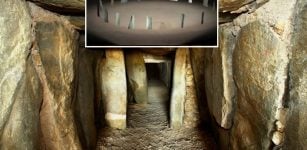 Dolmen de Soto: Unique Millennia-Old Underground Structure Remains A Puzzling Enigma
No Comments | Feb 10, 2022
Dolmen de Soto: Unique Millennia-Old Underground Structure Remains A Puzzling Enigma
No Comments | Feb 10, 2022 -
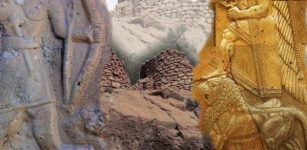 Mythical Temple Of Wingded Warrior God Haldi In The ‘City Of The Raven’
No Comments | Jul 21, 2016
Mythical Temple Of Wingded Warrior God Haldi In The ‘City Of The Raven’
No Comments | Jul 21, 2016 -
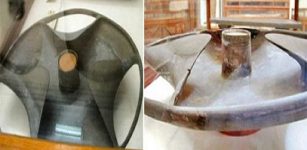 Schist Disk – Mysterious Piece Of Sophisticated Technology Could Rewrite History – Scientists Are Not Sure What They Are Dealing With
No Comments | Jun 30, 2013
Schist Disk – Mysterious Piece Of Sophisticated Technology Could Rewrite History – Scientists Are Not Sure What They Are Dealing With
No Comments | Jun 30, 2013 -
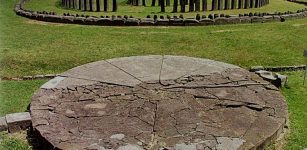 Sarmizegetusa And Its ‘Andesite Sun’ Artifact
No Comments | Nov 30, 2015
Sarmizegetusa And Its ‘Andesite Sun’ Artifact
No Comments | Nov 30, 2015 -
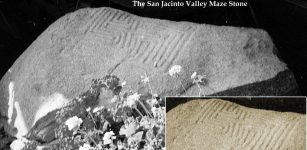 Baffling Prehistoric Maze Stones In Hemet And San Jacinta Valley, California
No Comments | Jun 24, 2016
Baffling Prehistoric Maze Stones In Hemet And San Jacinta Valley, California
No Comments | Jun 24, 2016 -
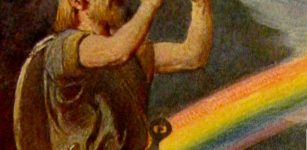 Heimdallr: Norse God Who ‘Illuminates The World’ And Guards The Rainbow Bridge Bifröst In Asgard
No Comments | Feb 6, 2016
Heimdallr: Norse God Who ‘Illuminates The World’ And Guards The Rainbow Bridge Bifröst In Asgard
No Comments | Feb 6, 2016 -
 Scientists Search For North America’s ‘Atlantis’ – Submerged Landscapes In The Gulf Of Mexico Studied
No Comments | Jul 15, 2024
Scientists Search For North America’s ‘Atlantis’ – Submerged Landscapes In The Gulf Of Mexico Studied
No Comments | Jul 15, 2024
